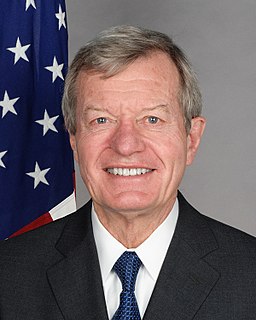A Quote by Arancha Gonzalez
Trade and investment promotion organizations are crucial partners in ITC's work to enable SMEs to internationalize. They sustain and multiply the impact of trade-related technical support and allow SMEs to function with confidence in any location.
Related Quotes
Sustainable production and consumption matter immensely to the people I meet every day as head of the International Trade Centre, which works with small and medium-sized enterprises (SMEs) to help them boost growth and job creation by improving their competitiveness and connecting to international markets.
The Transatlantic and Transpacific Trade and Investment Partnerships have nothing to do with free trade. 'Free trade' is used as a disguise to hide the power these agreements give to corporations to use lawsuits to overturn sovereign laws of nations that regulate pollution, food safety, GMOs, and minimum wages.
We are already well down the road toward a managed-trade regime. It would be far better to acknowledge that reality, and seek a set of reasonable rules, than to pretend that Ricardian trade is the norm and allow mercantilist states to overwhelm U.S. industry and ratchet down wages, in the name of free trade.


































